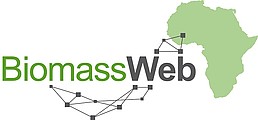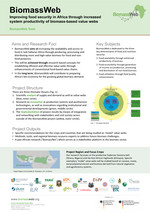BiomassWeb
Improving food security in Africa through increased system productivity of biomass-based value webs
The increasing global demand for food, as well as for feed and biomass-based raw materials, e.g. fuel and fiber crops, has increased the pressure on the agricultural sector in the past decade, especially in Africa. Concepts to increase food security while attending growing demands for non-food biomass and developing alternative biomass sources are still in their infant stages. BiomassWeb aims at contributing to food security in Sub-Saharan Africa by focusing on biomass-based value webs.
Biomass-based value webs are complex systems of interlinked value chains in which food and fodder, fuels, and other raw materials are produced, processed and traded. BiomassWeb will investigate the production and utilization of biomass in Africa by looking at current and future biomass demand and supply. The project will identify innovation opportunities in pre- and post-harvest production technologies, institutional settings and governance structures to enhance biomass value webs.
The overall goal of the project is to raise food security in Africa through harnessing productivity and efficiency gains in the whole biomass-producing, processing and trading system by increased integration of all value web components and the cascading utilization of biomass. BiomassWeb addresses the three pillars of food security, i.e. food availability, through enhanced biomass productivity; access to food, through income generation from non-food biomass production, processing and trading; and use of food, through increasing nutritional quality. BiomassWeb expects to contribute to enhancing the capacity of Africa to participate in the emerging regional and international bio-economy.
The project will focus on the productive Sudan savanna belt (Ghana, Nigeria) and the East African highlands (Ethiopia). Analysis will be on a systems level but specific, exemplary ‘model’ value webs will be studied based on cassava, maize, banana/plantain/enset and biomass derived from natural vegetation and agroforestry systems. These case studies allow investigating in detail the local, regional and international flows and trade of biomass and derived products.
The 5-year BiomassWeb research program comprises 24 work packages organized into 7 research clusters. Project output consists of scientific knowledge generation and capacity development in three forms: (1) Specific recommendations for the crops and countries that are being studied as ‘model’ webs; (2) a framework of methods and tools to address future biomass challenges and a group of regional biomass resource experts trained in applying and expanding the tools (forming a “living toolbox”); and (3) a pan-African network (“Biomass Network”) of biomass experts (scientists) and actors in Sub-Saharan Africa's biomass sector as a stakeholder platform for biomass-related discussions and activities in SSA in the coming decades.
The proposed initiative builds on an emerging network of German and African universities and research institutions, international agricultural research organizations, and the Forum for Agricultural Research in Africa (FARA) as a pan-African network with strong expertise and track record in transforming research into action.
Present output:
» Press release regarding Inception Workshop of BiomassWeb
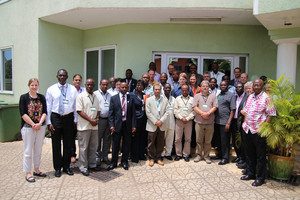
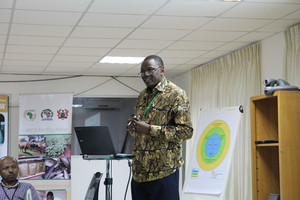
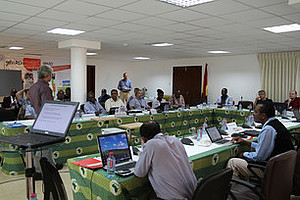
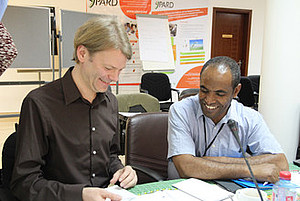
Source of pictures: BiomassWeb

